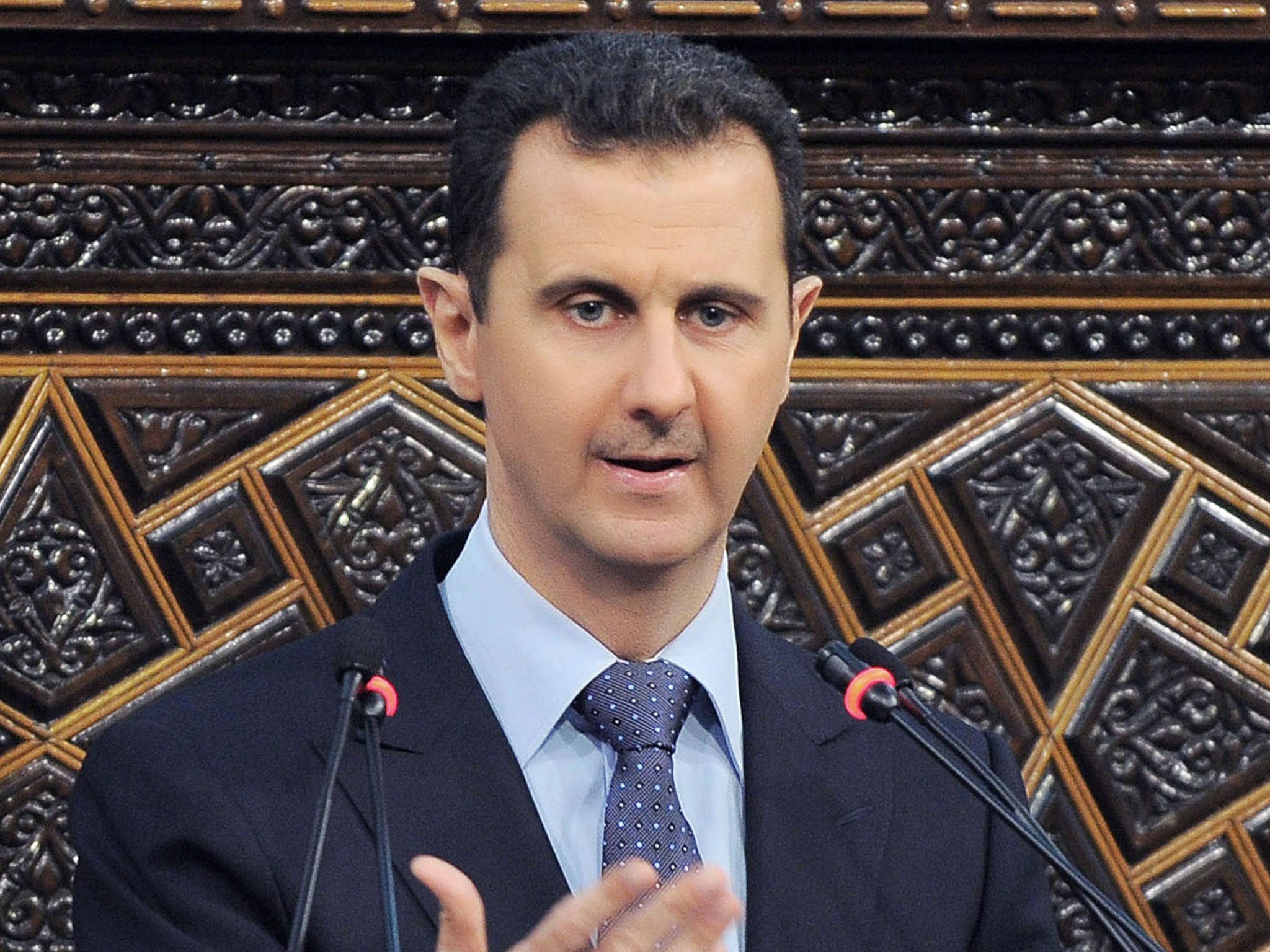Syria ‘is ready’ to let in UN chemical experts
Deputy foreign minister, Faisal Muqdad, indicates that weapons inspectors would be allowed into the country to perform tests

Your support helps us to tell the story
From reproductive rights to climate change to Big Tech, The Independent is on the ground when the story is developing. Whether it's investigating the financials of Elon Musk's pro-Trump PAC or producing our latest documentary, 'The A Word', which shines a light on the American women fighting for reproductive rights, we know how important it is to parse out the facts from the messaging.
At such a critical moment in US history, we need reporters on the ground. Your donation allows us to keep sending journalists to speak to both sides of the story.
The Independent is trusted by Americans across the entire political spectrum. And unlike many other quality news outlets, we choose not to lock Americans out of our reporting and analysis with paywalls. We believe quality journalism should be available to everyone, paid for by those who can afford it.
Your support makes all the difference.The Syrian government has said it is ready for the United Nations to investigate whether chemical weapons had been used in the country’s two-year-long civil war.
The deputy foreign minister, Faisal Muqdad, indicated that UN weapons inspectors would be allowed into Syria to perform tests.
“We were ready and we are always ready, right now, to receive the delegation that was set up by [UN secretary general] Ban Ki-moon to investigate what happened in Khan al-Assal,” Mr Muqdad told AFP.
The development comes a day after David Cameron said there was a “growing body of limited but persuasive information showing that the regime has used and continues to use chemical weapons.”
The Syrian government has said it is rebel forces that have used chemical weapons, and last month requested that the UN send a team to investigate areas where it claims the incidents took place. Ban Ki-moon agreed, but said the mission would only succeed if the team were allowed to investigate allegations of chemical weapons use by both sides in the conflict.
A team of UN-led experts has been on standby in Cyprus for more than a month waiting for permission to entry the country.
The move by the government comes as President Assad has said that Syria must become a “resistance nation like Hezbollah”. The embattled leader used an interview with a Syrian newspaper earlier this week to heap praise on the militant group in neighbouring Lebanon.
Speaking to Al-Akhbar, Mr Assad, who for two years has been fighting a bitter civil war, said: “We have decided we must advance toward them and turn into a resistance nation like Hezbollah, for the sake of Syria and future generations.”
There is some doubt about the meaning of Assad’s words. One interpretation is that he is issuing a battle cry to his loyalist fighters, many of whom support Hezbollah. Another is that he is urging action against Israel, which launched at least three air strikes on Syria last weekend. Israel has been adamant it does not want to involve itself in the civil war, but Hezbollah’s growing influence in Syria has made it nervous. It is has stated it will act to prevent Hezbollah from acquiring advanced weapons systems.
Hezbollah’s growing influence in the Syrian civil war has made the Jewish state nervous.
Join our commenting forum
Join thought-provoking conversations, follow other Independent readers and see their replies
Comments